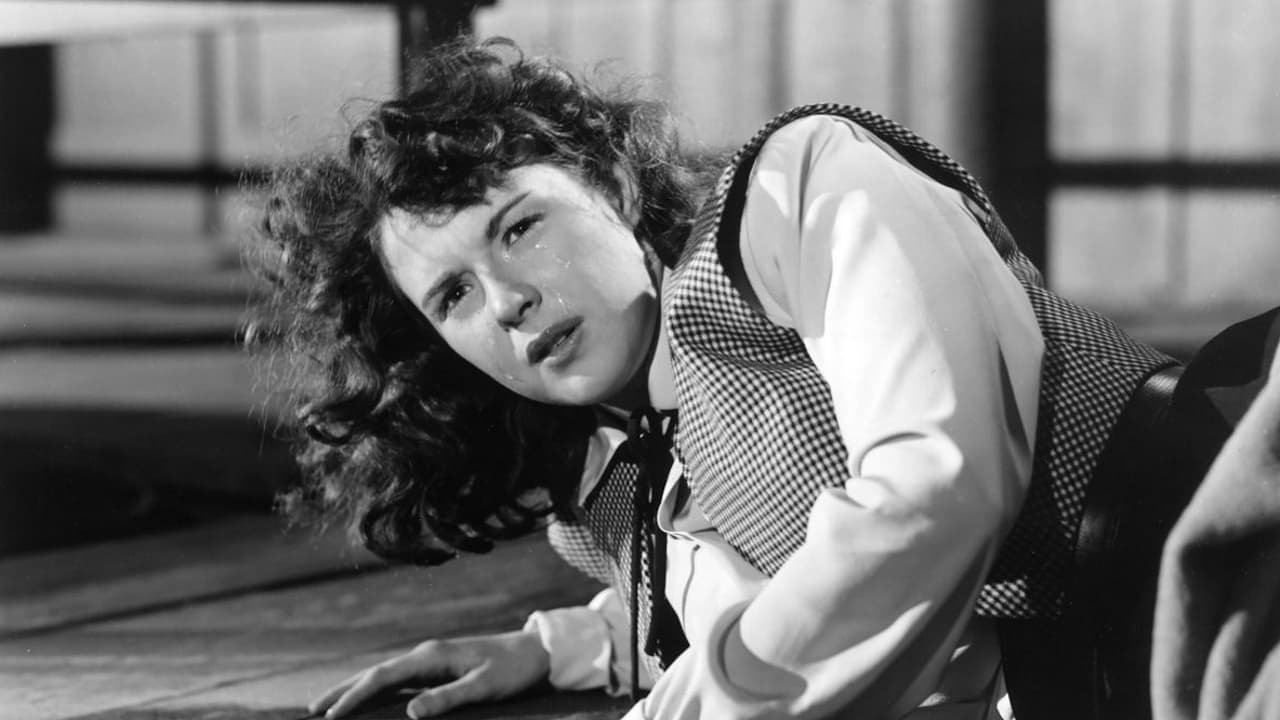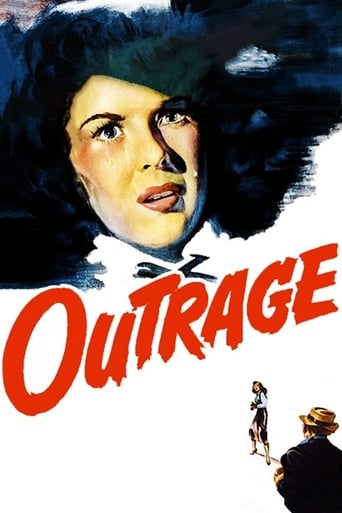

What an incredible film! The scene where Mala Powers' character is stalked, right before the rape, is on a par with anything Hitchcock ever did. And the line-up scene, a bit later in the film, with its quick cuts from one potentially guilty face to the next, is truly suspenseful. A nationally known critic seems to think the filmmakers presented an optimistic viewpoint about a rape victim's recovery, but I slightly disagree. I would say that Ida Lupino's direction shows much more ambiguity, and that it is not going to be easy for the main character to continue rebuilding her life in a society like ours. How is she ever going to be able to trust a man again? This is thoughtful cinema at its best. Definitely worth seeing.
... View MoreI really enjoyed the movie until the rape. When the rapist was chasing Ann, I couldn't understand why she kept stopping to look around. She stopped about ten times, I just couldn't understand it. When she came across the taxi cab, she didn't scream bloody murder, maybe they would have stopped? Maybe not.I also did not like how they kept having her fall and pass out or whatever during the chase, and once more when she was "on the run." So many things annoyed me. I hated how the people in her neighborhood and at work kept looking at her like she had done something wrong because she had been raped, it could have been any one of those women or one of the men's female loved ones.After she runs away, and is at a diner, a radio broadcast comes on saying that she has been missing. She covers her face. Why? There was no description given out. She only drew attention to herself.During the movie she behaved like a nut. She sees a police officer and starts acting so strange it only makes you pay more attention. She acted like she was a child who could be forced to go back to her hometown instead of a grown woman who could live wherever she pleased.
... View MoreBefore this little black-and-whiter, the touchy topic of criminal rape never made it onto the American screen.There were lots of these topics that Hollywood and the Production Code kept hidden until the rebellious 1960's. So it's not surprising that it would take a little independent company like Ida Lupino's Filmmakers to raise the subject. The result is well-meaning but somewhat compromised, which is not surprising since director Lupino had to work with Code demands to get the movie released.Interestingly, Ann Walton's (Mala Powers) main problem following the assault is not how others might see her, but how she sees herself. And it's a heavy load she's carrying. Will she ever be able to relate to men again? Will they look at her as "spoiled goods" (after all, this is 1950)? Small wonder she runs away rather than face these anxieties at home and at work, even though family and friends are generally supportive. Overall, this first part is earnest and well-done. The chase is hyped to inject some action into the plot, but then this is a movie-- notice how the incurious neighbor fails to respond to the honking horn near chase's end. Had those been screams of alarm from Powers instead, the neighbor's lack of response would have raised an interesting albeit complicating issue.The second half is pretty much given over to the Production Code in the sentimentalized person of Rev. Ferguson (Tod Andrews). It's he (to quote a phrase) who "gives her courage to face life again". There's some effort at humanizing him-- is it Ann or her dilemma that he's most interested in. Still, his gentle and understanding presence comes across as a little too miraculous and a little too Hollywood. Fortunately, the ending avoids the usual Hollywood cop-out by emphasizing only the hope of a happy resolution for Ann rather than its certainty. Give Lupino a ton of credit for dealing with the topic in the first place. Given the overall results, I expect she dealt as honestly with the topic as she was allowed to. I also expect today's audiences find the treatment mildly interesting mainly because of Powers' excellent performance that brings out the purely human drama. However, the film works best now as a document of its time, and what the cultural watchdogs of that day thought was appropriate for adult viewing.
... View MoreIt was the first film dealing with the burning subject of rape.France,for instance,had to wait till 1977 to see a (female) director -Yannick Bellon- tackle this crime.Bellon had a different way to express her disgust in her "l'amour violé" :she showed the whole scene of the rape which lasted ten interminable minutes and she did not turn the audience into peeping toms ,far from it: most of the time,they had to look away .Given the Hayes code ,and given the limitations she was working under,Lupino's movie is quite successful.We do not see the rape ,but its aftermath is depicted in lavish details:the scene at the office where the heroine cannot stand the familiar noises anymore is a great moment;the people on the street with their big smile who talk behind her back;the fiancé who cannot understand and who wants to carry on as if nothing has happened;every man becoming a living threat for her;all rings true.It will take a man's patience,compassion and disinterested love to push Ann towards life again.
... View More